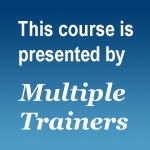

Search Results: needs
-
Trainer Tip: Have you ever noticed that some of your behaviors ensure that your needs for peace and relief won’t be met? Take judgments for instance. The more we have, the less peaceful and happy we feel.
-
Trainer Tip: When there's conflict if you set the intention to connect and build trust first, you're more likely to move towards resolution. This can be built through offering reflections that captures essence of what's important to each party. Once connection and trust is established, then begin the process of creating strategies and solutions.
-
Discover deeper self-acceptance, unlocking emotional healing and spiritual presence.
-
Poetic License is a fun group exercise that's sure to incite laughter in your NVC group!
-
See the key principles of NVC demonstrated visually, with needs at the center.
-
Celebrate love with Rodger Sorrow! Listen in as Rodger discusses a range of topics such as defining love, religion and love, and how to handle unloving responses.
-
Guide equitable group dynamics by tracking attention, needs, and impact.
-
Explore how NVC supports mediation and conflict resolution in this engaging course recording.
-
Experience the roots of NVC with this remastered introduction to embodied spiritual practice.
-
Trainer Tip: Violence results from thinking that others caused our pain and deserve to be punished. The cause of our feelings is related to our own needs in the moment. What happened is the stimulus. Notice this when you are tempted to blame other people for your feelings, and try to discover your unmet needs.
-
Join CNVC Certified Trainer Arnina Kashtan as she explores enemy images to increase your capacity to embrace life more fully. Free yourself from the “us-them” paradigm and experience true compassion for the people whose actions most trouble you.
-
Trainer tip: Empathy, hearing feelings and needs behind someone’s words, can be incredibly healing -- and it can help us come to better understanding and resolution. Empathize with at least on person today. Read on for an example of applied empathy.
-
Judgment is an attempt to protect from hopelessness or insecurity, at high cost. Instead, check in with fear, grief, or hurt. Then wonder what needs are at stake for everyone. This makes space for grief instead of anger, for negotiation rather than control, and for "calling in" rather than excluding. Wonder: “For whom would this be life-serving or not?”, “What strategies would care for all needs?” or, “What can I contribute now?”
-
-
"Falling out of love" is a misleading concept that can lead to feelings of helplessness in relationships. The initial intense phase of love gradually gives way to the need for intentional effort and communication. Unrealistic relationship expectations can erode connection, causing the perception of falling out of love. To address this, we can ask key questions and seek clarity to attend to unmet needs and maintain a healthy connection.
-
Discover how replacing "niceness" with honesty, passion, and compassion restores aliveness.
-
Trainer Tip: Accepting our true feelings, needs and values can lead us to a more compassionate life. Are you being true to yourself?
-
Explore how NVC and the Enneagram deepen understanding of personality and foster connection.
-
Clarity leads to compassion and empowerment with Robert's approach to NVC and transformation.
-
Discover your unique role in creating a world where everyone’s needs matter.

Quick Links
Subscription Preferences
Stay In Touch!
Looking for ways to keep up with NVC Academy news, get special offers, free resources, or words of inspiration? Here are five ways to stay engaged:




















